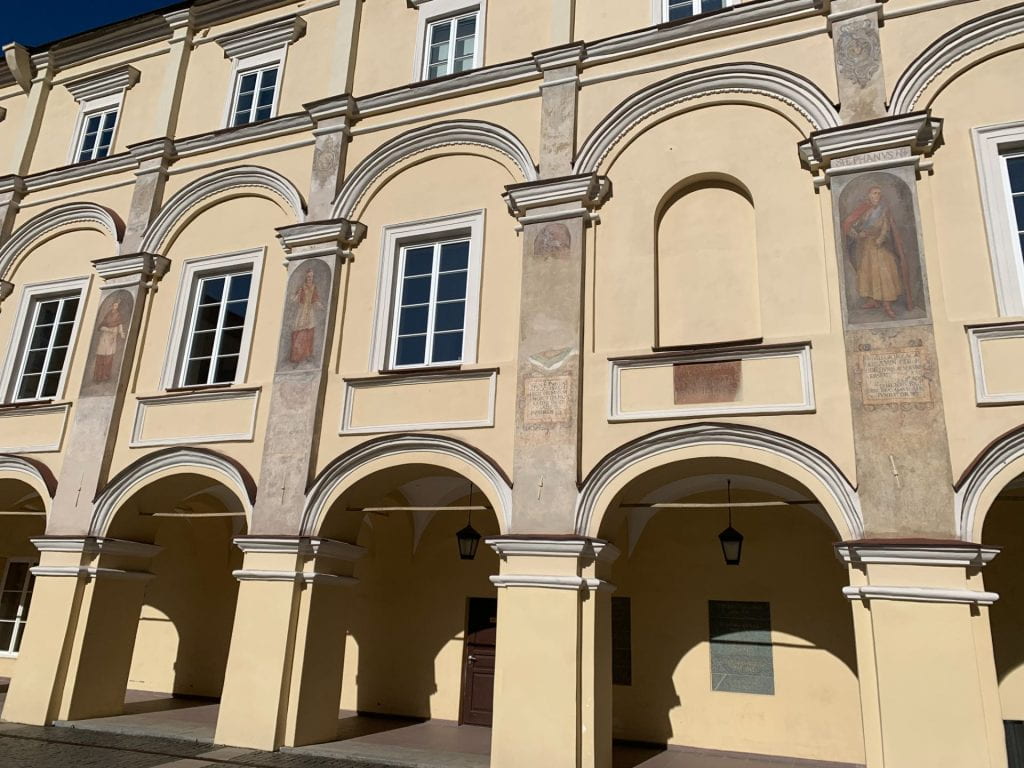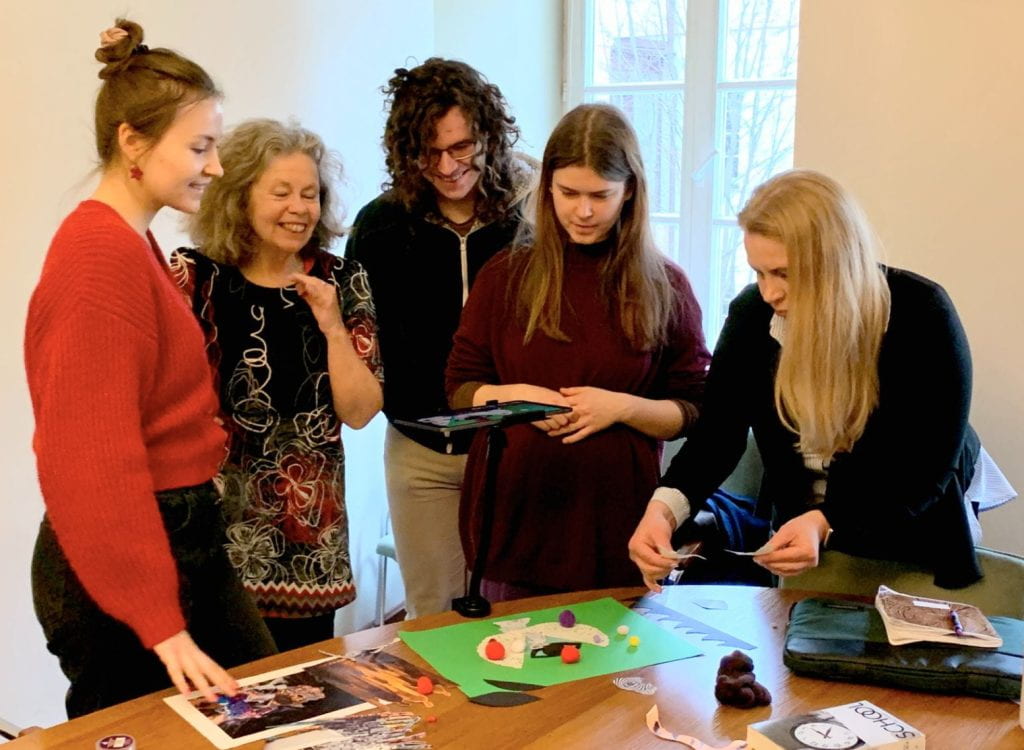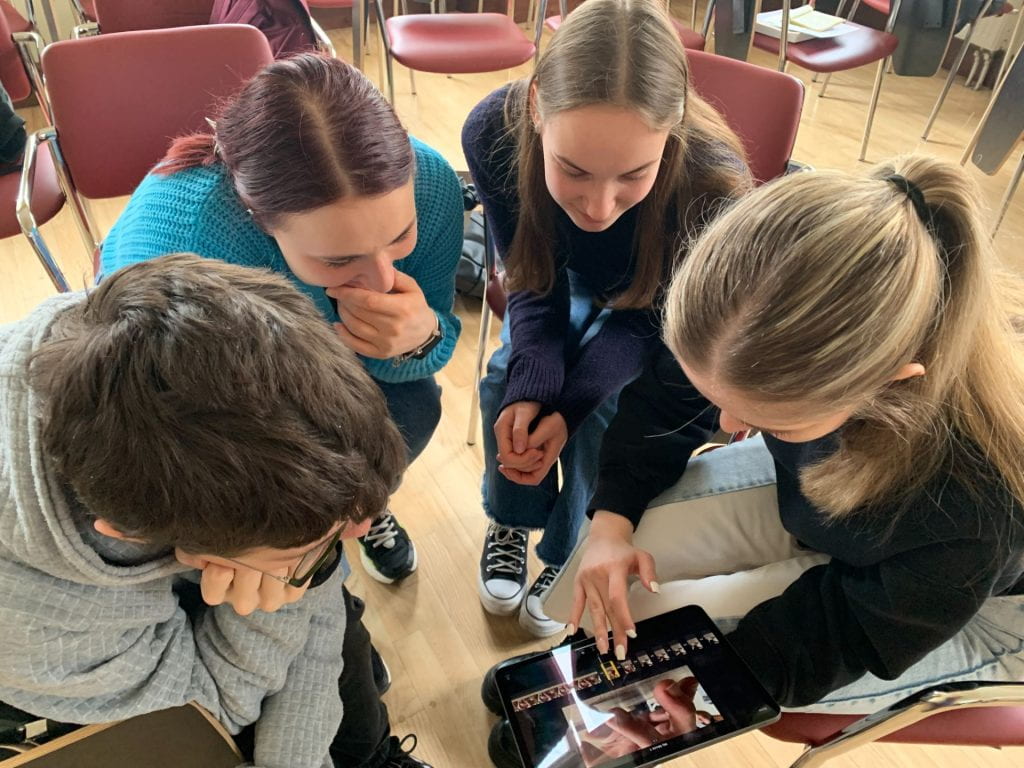Upgrade to Moodle 4.4
By Kerry, on 24 July 2024
UCL Moodle is due for its summer upgrade tomorrow (25 July 2024). We will be upgrading to Moodle 4.4. Downtime should be minimal and the upgrade will take place between 00:00 and 04:00 GMT on Thursday 25 July 2024.
There will be improvements and new features for site administrators, teachers and students.
What does this mean for you? Well if you are involved in teaching or editing course pages on Moodle, you can expect to see the following changes:
- Course page improvements
- Forum enhancement for groups
- Quiz improvements
- Badge filtering
On course pages, activities and icons are now more clearly defined, icons have more accessible colours and file types can be more easily identified. Also, you are now able to choose to focus on one section at a time when viewing a page and choose to see one section at a time while in edit mode. This will help to reduce clutter when you need to focus on one part of your course page. Topics format has become “Custom sections”.
Additionally, Flexible format will be removed as part of the update. Courses in this format will automatically shift to the “Custom sections” format. The previously issued Flexible format guidance explains why this is happening.
The forum has been enhanced to allow you to post to all groups if the forum is in group mode and you have set up more than one group, which will be a welcome time-saving feature.
In terms of quiz improvements, students can now see when their response to a question was last saved, and teachers can assign a grade to a quiz section to provide more detailed feedback to students. In addition, there is now a new ordering question type that can be used for text or images.
Finally, teachers and students can now filter badges.
Moodle HQ have created a YouTube Playlist which highlights the main changes in Moodle 4.4. We shall also be updating our own mini guides in due course but we are hoping that you find these simple improvements intuitive and seamless.
Please note the TinyMCE editor and Matrix rooms are not part of the upgrade. We are currently reviewing TinyMCE and will update you if we decide to install it in the future.
Happy Moodling (version 4.4) in the meantime!
The Digital Learning Environments team.
Update on the Moodle-SITS Marks Transfer Wizard
By Kerry, on 6 June 2024
Since the release of the Moodle-SITS Marks Transfer Wizard in March 2024, we have an important update for you. When selecting a source Moodle activity to transfer marks from, Moodle activities can now include a Grade Item or Grade Category from the Moodle Grade Book.
Previously, it was only possible to transfer marks from a single Moodle assignment, Quiz or Turnitin assignment to one or more than one assessment component in Portico.
From 6th June 2024, you will also be able to select a Grade Item that you have manually created in the Moodle Grade Book. In addition, you will be able to transfer marks from a Grade Category. This means that if you have set up a Category in the Grade Book which has its own aggregated grade calculated from its Grade Items, you can also transfer this grade to one or more than one assessment component in Portico.
Please ensure that the Grade Item or Category meet the following criteria before completing a marks transfer:
- The mark is numeric (letter grades are not eligible) so the Grade type should be set to “value”.
- The maximum value is 100.
- The Grade display type is set to “Real” (other display types will not be recognised by Portico so the item or Category would not show up as a Source activity in the Marks Transfer Wizard).
These developments were prioritised following user feedback during the pilot earlier this year. Our next priority will be to analyse requirements for SORAs, ECs, LSAs and other special cases.
You can access guidance on how to use Marks Transfer in our Wiki, which includes short screen recordings. There is now also a short Tour on Moodle for users getting started with the tool.
If you are experiencing issues with using the Marks Transfer Wizard, please check our FAQs (which are frequently updated) and if you are still unable to resolve your issue, you should contact the Digital Education Support team at digi-ed@ucl.ac.uk.
For any issues with Portico data, contact examboards@ucl.ac.uk or for issues with incorrect assessment set up, contact lifecycle@ucl.ac.uk.
For general feedback or suggestions on future developments, please contact your Faculty Champion.
Moodle Assignment with Turnitin default settings change
By Eliot Hoving, on 4 June 2024
Turnitin can be used as an assignment activity on Moodle (option a), or in a Moodle assignment where it checks the submission for text-matching but the marking remains in Moodle assignment (option b).
These two options have mostly the same settings, but currently there is inconsistency in some of default settings between the two.
To ensure the default settings are the same for both, the DLE team will change the default settings for the following options from No to Yes for Turnitin in Moodle assignment (option b).
- Display Similarity Reports to Students
- Allow submissions of any file type?
- Exclude Bibliography
- Exclude Quoted Material
These new defaults will only apply if Turnitin is enabled in a Moodle assignment. Staff can choose to override the default values if they require.
These changes will take effect from the 1st July 2024.
Any questions or issues please contact the DLE team.
MATLAB Online Courses LTI now available
By Eliot Hoving, on 13 May 2024
The Digital Learning Environment Team are pleased to announce a new MATLAB activity available on Moodle.
The MATLAB and Simulink Online Courses LTI 1.3 allows students to automatically track progress in self-paced training courses on MATLAB and Simulink. Students can move from Moodle into their MATLAB online course/s seamlessly. Courses include MATLAB for Data Processing and Visualisation, Deep Learning with MATLAB and plenty more.
You can add the activity onto any Moodle course from the activity chooser page, in the same way as you would add other activities.
Moodle course rollover for 2024/25
By Eliot Hoving, on 7 May 2024
Course administrators and tutors can now rollover Moodle courses for the 2024/25 academic year.
Please note that Lecturecast sections for the upcoming academic year 2024/25 will not to be available until the 1st of August 2024, after which the new academic year’s sections can be linked to the rolled over Moodle course.
If you need to rollover a course for the current 2023/24 academic year, then please contact IT services.
Relevant guides:
Digital Adventures in Vilnius
By rebecca.wilson, on 24 April 2024
Working in the Digital Skills Development team it is a pleasure to teach creative media sessions to students and staff at UCL, but how exciting to be able to share our sessions at Vilnius University in Lithuania.
I was invited to work with Dr Michelle Cannon, Lecturer in Digital Arts and Media in Education, UCL Institute of Education, to help plan and deliver agile film making, Soundscape creation, and stop motion animation workshops. We arrived late at night in Vilnius airport, our luggage full of iPads, stands, lights, art materials and our heads full of ideas.
Our colleagues in Vilnius University were Associate Professor Sandra Kairė, Director of the Institute of Educational Sciences and Gintė Žulytė, Education Co-ordinator of Meno Avilys (the Institute of Documentary Film Vilnius). Meno Avilys is a Lithuanian NGO, committed to promoting film and media cultures, and related educational programmes. We worked collaboratively to plan targeted workshops for their students. Our Vilnius colleagues audited the sessions with a view to further development for their new Media Education module for Erasmus students next year.
The literary stimulus we chose was Shaun Tan’s graphic novel The Arrival. Reflecting first on a text as a stimulus roots the activity thematically and conceptually and provides a springboard for creative production. The student brief was to make a 30 second film using stills, video and sound to create a moving montage inspired by themes from the text such as dislocation, longing, loneliness and wonder.
English was no barrier to communication and students were gathered from a range of disciplines including Primary Education, Childhood Pedagogy and Psychology. None of the students were familiar with practical media-making as part of their university curriculum. It was both moving and inspiring to experience the students’ enthusiasm for creative digital making.
In a short space of time, students learnt film making techniques, how to edit and incorporate sound, and how to share and critique their work. They also learnt stop motion animation techniques; making a collage of artwork to create an animated abstract visual sequence. We also shared ideas and examples using ‘Audacity’ software to demonstrate mixing layers of sound to craft engaging Soundscapes.
We facilitated a whirlwind few days of creative making and it was a pleasure to work with such articulate, creative and enthusiastic students. Our visit was a great opportunity to collaborate internationally with like-minded academics and staff to promote creative Media Education and practice-based learning experiences.
 Close
Close




